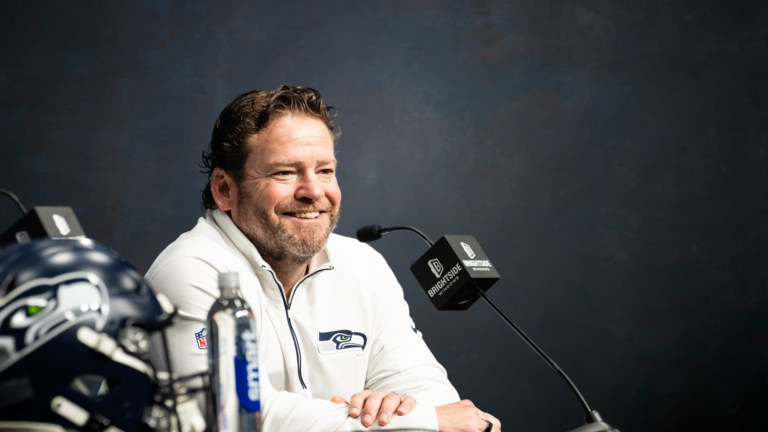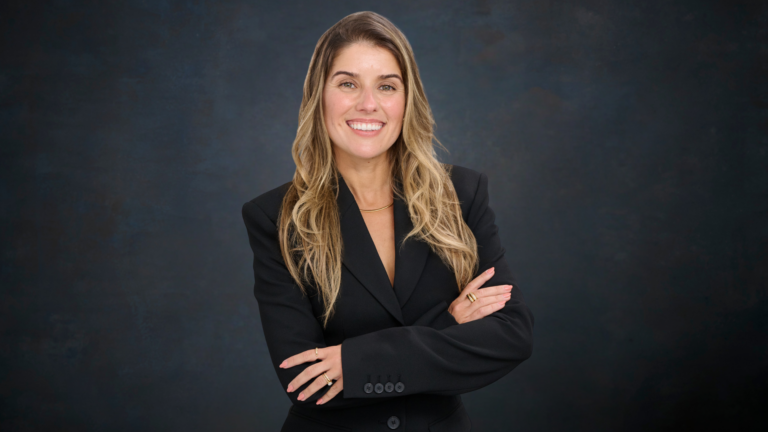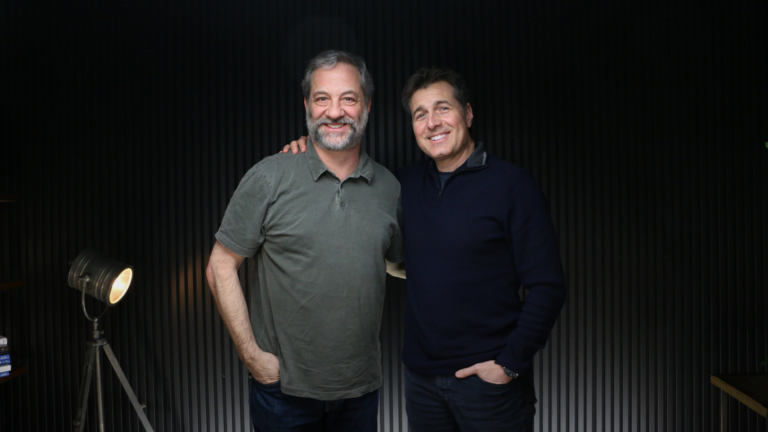I think it’s fair to say we all know a thing or two about stress. Hopefully we’ve all found a practice (or several) to help us manage it. Our guest for this episode has gone a few steps further…
Dr. David Rabin – Dr. Dave as he’s better known – has dedicated much of his life’s work as a neuroscientist, psychiatrist, and innovative health tech entrepreneur to studying the impacts of chronic stress and developing groundbreaking approaches to stress management, treatment-resistant illnesses, and our bodies’ inherent ability to heal itself.
Dr. Dave understands that “stress is everywhere and it will always be there,” – however, his commitment to seeing it as opportunity for growth – as opposed to suffering – has led him to some fascinating discoveries and life-changing outcomes. As co-founder and Chief Medical Officer of Apollo Neuro, Dr. Dave led the way in creating the first scientifically-validated wearable technology that actively improves your health by strengthening your nervous system and resilience to stress over time. This revolutionary tech has been a game changer in my life, and it’s one of the reasons I’m so stoked to have Dr. Dave back on the podcast and to have partnered with his company, Apollo Neuro.
Last time he was on the podcast, over 2 years ago, we touched a great deal on how powerful the human mind is – why we’re uniquely suited to adapt to and overcome adversity. This time around, we dive deeper into the science of stress, why we may be entering a transformative time for mental health, techniques for self-soothing, and some of the non-invasive, alternative therapies he believes can help us in our respective journeys to heal ourselves.
With compelling anecdotes and cutting-edge knowledge, Dr. Dave shares hope for the future, where new tools and approaches might finally enable us to use the elusive term “cure” in the context of mental health. He’s a scientist who truly thinks outside the box and I can’t wait for you to hear his extraordinary insights.
“We were born to feel, and everything makes us feel. If we deny our feelings, then we get stuck. So it’s really about feeling what comes up that allows us to process and then let go.”
In This Episode:
Born to feel
We are sensory organs as human beings. Our entire bodies were born to feel, and we’re not taught how to feel the stuff that matters and to let the stuff that doesn’t matter so much, and it’s not true and useful to us, go. And when we’re constantly bombarded by information, it causes overstimulation and stress, and that stress has to be dealt with. And I think what we’re seeing in the clinical community, with our clients and more and more people coming to us, especially Gen Z folks, is that people aren’t getting taught the tools. They’re not learning in school or from their parents, because often their parents weren’t taught. I know I wasn’t taught growing up about breath work, intentional breathing, meditation, yoga, having a good regular exercise routine. That was one of the things that I did on my own because I love sports and athletics and competitive engagements like that. But in general, a lot of this other stuff wasn’t taught. And so, we’re now seeing the downstream effects of overstimulation on a consistent basis.
Self-soothing
Children, at the youngest age possible, need to learn how to self-soothe. And so, if we can teach them how to do that on their own, by either role modeling it themselves or helping them understand how to do it, well, helping them watch, other kids doing it, learning how to just focus on your breath, learning how to give yourself a hug, learning how to take it out on the field, go exercise, go run, those kinds of self soothing techniques, get trained and practiced over time so that we can take on more load. But if we haven’t mastered those techniques or haven’t even learned how to do them from the beginning, all of a sudden the load starts to go up and we’re like, “Well, what do I do now? I’m completely overwhelmed and helpless.”
A cure for mental health disorders?
While we’re at one of the worst ever times of mental health in the entire history of Western culture in terms of number of people who are sick and ability to effectively treat those people and give them relief, we’re also hopefully, and what the data’s showing, entering what could be one of the most transformative times for mental health, where these new tools are coming up that are actually showing that we might start to be able to use the cure word for mental health. And that’s never been a word we’ve been allowed to use before.
Why are we so stressed out?
I think the most common answers that I hear or that I would typically give would be news, work, responsibilities, and those kinds of things, but I think that if I were to actually narrow it down to one thing, I would say it’s the systematic denial of our feelings. Because we’re made to feel. We were born to feel and everything makes us feel. So if we deny those feelings, then we get stuck. So it’s really about feeling what comes up that allows us to process and then let go, as you were saying earlier, let go of the load. But when we don’t allow ourselves to feel, then the load accumulates and that’s when we wind up having problems and getting sick.
Non-judgmental feeling
There’s no analysis required for feeling. That’s the beauty of feeling. It’s literally just non-judgmental experience. It’s like, I have an emotion. Maybe that emotion is joy and maybe it’s anger, but it’s something. And rather than judge it, I’m just going to feel what it is and just try to understand what this emotion is trying to signal to me right now. What is this telling me that is going on inside me or in my environment that I’m supposed to pay attention to? That’s what emotions are. They’re literally signals that are trying to tell us to pay attention to something in a certain way. So the interpretation of that gets really messy when we start to interpret too early and analyze too early and pre-judge, because we’re like, “Oh, I feel angry. I remember what that feels like. I remember my parents telling me when I was a kid that I’m not allowed to feel that way, so that means that’s bad. I must be bad for feeling this way. What’s wrong with me?” All of a sudden, your ability to interpret that signal has completely been tossed out the window and you’ve already judged it and judged yourself in the process. You’ve eliminated your ability to adapt smoothly to that experience. So what we teach is non-judgmental feeling, which is saying reserve judgment. Judgment is part of the interpretation process. Just feel the emotion first for the signal that it is not good or bad, and then let that guide you towards the interpretation before you’ve made a decision off the bat.
Choosing productive thoughts
Anxiety is the signal that arises in us that can come up in lots of different ways. It can come up as chills. It can come up as tension or solar plexus, racing heart, sweating, all the things we talk about, racing thoughts. And it comes up as a signal there’s uncertainty in our environment. Again, it’s not good or bad. So what it’s telling us is pay attention to what is uncertain around you, address it, and if it’s not a survival threat, then let it go because it’s not going to help you right now. But again, this is a very, very fundamental cognitive behavioral therapy technique, which is called thought questioning. And this is something that we should teach to every single human being very young, but we don’t. And it just involves doing yourself the respect of asking yourself, “When I have a thought, is this thought true and useful to me right now in this moment?” And if it is and it passes that test, then we allow it in and we pay attention to it. And those are usually things that pass are things we have control over, like I’m bringing my best self to this moment. But if we spend and allocate time and resources allowing untrue and useless thoughts into our attention, it’s like letting a vampire into your consciousness.
What are we getting wrong?
A lot of things. We’re not grateful enough, for one. We don’t operate with grace. We don’t prioritize grace. I think historically, grace as a word used to be an ultimate goal for human beings. It’s an angelic level of being, where you’re just free-flowing smoothly without resistance, like water flowing down a river. That’s life. Like Bruce Lee, you’re just flowing. And that is I think one of the things that we have often forgotten about because we spend so much time thinking about what we don’t have and spending so much time watching other people and wanting what they have, and then regretting things that we’ve done in the past and grilling ourselves and judging ourselves for not doing enough and not being good enough.
Being vs Becoming
Becoming is the future look, and being is what we are right now. And we are human beings, so inherently being born a human being means that we are being first, at least that’s what we should teach, but we don’t really teach that. Eastern techniques and tribal techniques do a much better job of it. But in the western culture, everything is more aligned around what we are becoming. What is our trajectory aimed at? And I think the magic is really in the middle between both, because we want to be able to be present as often as possible and just be ourselves, but we also want to achieve. Many of us have ambitions, and discovery itself is one of the most exciting experiences you can have as a human being, is to discover something new and feel like you did it. You were involved in this process of learning something new about yourself or new about the world you didn’t know before. That’s why kids are so happy all the time. Every single moment’s a new discovery for them. And so I think the balance between being and becoming is allowing some of that childhood innocence of being and discovery to come through with us into our adulthood and to respect the inner child and to respect play and to not just focus on producing, but to respect play and that balance.
The self-discovery process
The hardest part for people in this process is accepting the premise of all of this self-discovery stuff, which we have to accept in science, which is you don’t know what you’re going to become. We can’t know what we’re going to become. We can’t necessarily know what we’re capable of, and we can’t necessarily know what we’re discovering. That’s why the process is so exciting.
Apollo Neuro provides “safety”
They weren’t getting enough of that safety feedback to combat the stress and the threat that was overstimulating people. And we realized that you could, by sending these gentle, soothing rhythms to the body, you could kind of nudge the body back into its balanced state and back into a state of embodied being rather than a state of up here thinking about the past or the future, regretting and forecasting all the time, but really a state of embodied presentness. And so that was what the technology does and what it feels like. And we developed it originally for folks with PTSD and veterans we were studying at the University of Pittsburgh in the Department of Psychiatry. And I’m a psychiatrist and a neuroscientist, and I was working at the university at the time doing this work. And then we made a bunch of prototypes and realized that it worked for us, and it worked for healthy folks and people who were just having day-to-day, regular, busy, stressful lives.
MDMA assisted therapy – how does it work?
What we found is that MDMA in the therapy is helping people feel so radically safe by molecularly amplifying safety pathways in the client’s brain that we are already setting the foundation for by this relationship, as you said, that they feel safe enough to be vulnerable. So think about that. That’s all it is. It’s safe enough to be vulnerable. And exposure to vulnerability, it unlocks healing, because that’s the stuff that’s hurting. And if we’re afraid of the stuff that’s hurting, or we shame it or we guilt ourselves about it, or we judge ourselves for it, then we don’t feel safe or comfortable exposing that vulnerability. It feels shameful. It feels upsetting. And so the medicine helps just for a brief period, four to eight hours, just kind of quiet that part of the brain molecularly, amplifying the safety of the therapeutic environment. And then that allows people to feel safe enough to heal and to be vulnerable. And so we saw that mechanism and we said, “Well, what else does that?” Soothing touch.



